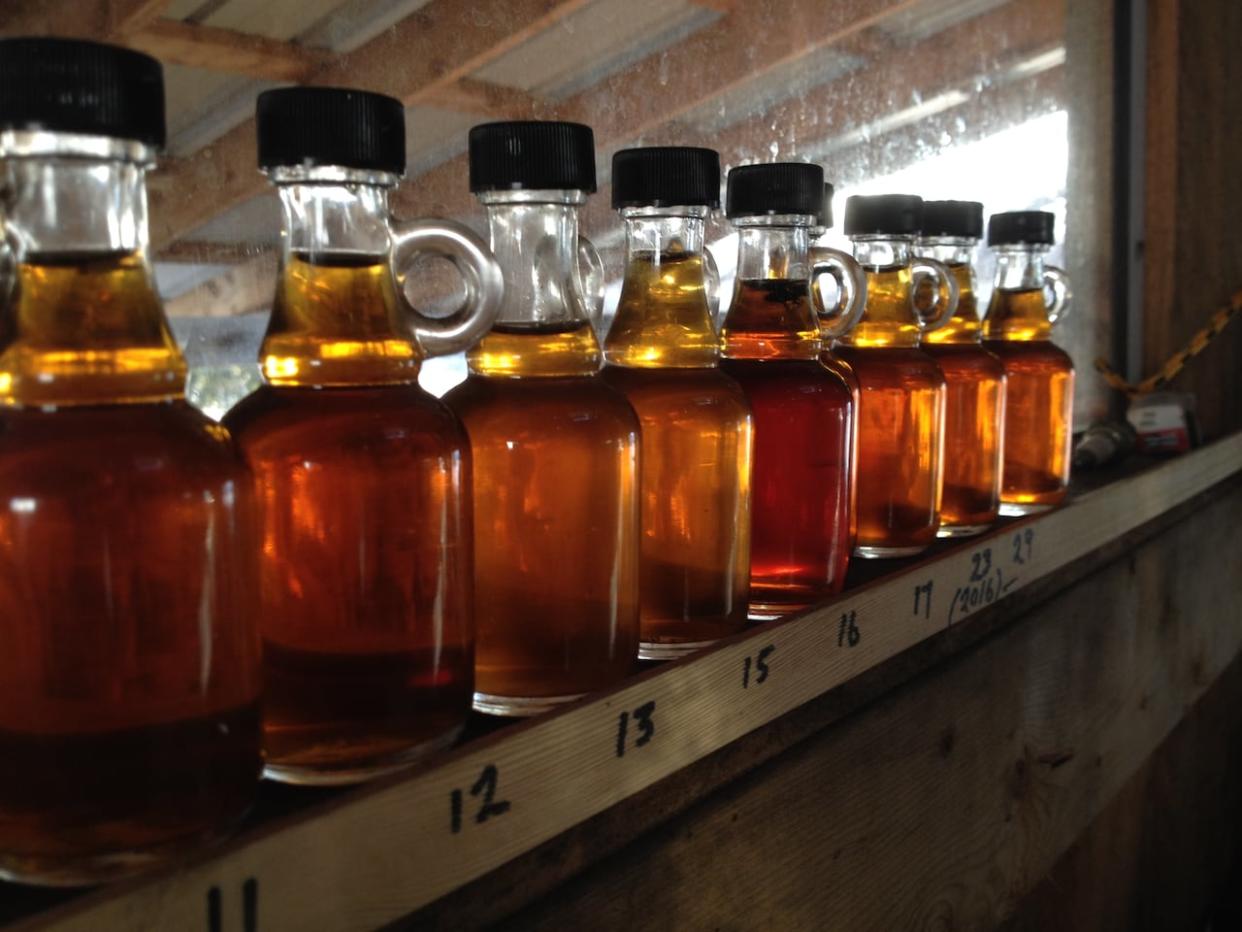Sweet! Warm days, cool nights means Ontario maple syrup season off to early start

As many workers in the agriculture sector worry about the unseasonable weather southern Ontario has been experiencing, maple syrup farms seem to be having a sweet start to the year.
According to Statistic Canada, syrup yield in 2023 was down 40 per cent from the year prior due to cold weather.
This year, provincial producers are facing the opposite environment with warmer temperatures but are making the most of it.
"Everyone I've talked to in Ontario seems to be on track for an OK season," John Williams, executive director of the Ontario Maple Syrup Producers Association, told CBC News.
"I'm actually located in the Midland area. So for us, we're usually tapping late February/early March and then the bulk of our syrup production would be late March/Early April."
That timeframe is typically on par for Andrew Sallans, too. He owns Maple Tap Farm in New Dundee, but he says this year brought an earlier start.
"Earliest season we've ever tapped," he said. "We started tapping the 1st of February and we caught some sap runs. We probably made a third of our crop in February, which is pretty much unheard of."
Same goes for Joel Robson, one of the owners of Rolling Ridge Maple Products in Ilderton.
"We actually started tapping near the end of January with that first warm spell. We've made a fair bit of syrup already," he told CBC News. "This is probably the earliest we've tapped the majority of our trees."
Sallans says the ideal climate for tapping this time of year is a gradual warming trend with freezing temperatures at night and warmth during the day.
"Now the weather we're getting, extreme warm without freeze — the grass growing takes the frost out of the ground in the bush and it will actually start the process of the buds growing on the tree. Once that happens, this sap is no longer viable for production."
LISTEN | An early start to the maple season has Quebec sugar shacks hoping for a profitable season:
Concerns about tapping too early
To avoid battling the elements, production began earlier for many farmers but that didn't come without its own concerns.
Once a tree is tapped, the hole tries to heal itself, giving a six to eight week window before production levels start to drop off. Though, recent technology has allowed for an extended window, Williams said.
"These days our lines are much cleaner and that allows the tap holes to stay open longer," Williams said. "Traditionally, if you were on buckets or didn't have vacuum on your tubing, you might have a month where your tap holes would stay open and provide good set flow. Now we can get two months and sometimes a little longer."
Consumers may be able to get their hands on a bottle of their favourite syrups earlier, but how does the warmer climate affect the product?
Sallans says the taste will be the same but there may be a noticeable difference in what its appearance.
"You tend to make darker syrup just because the sap sits in the lines and sap sits in your buckets. It tends to go a little bit cloudy," he said.
Plans for the future
With climate change rapidly affecting the weather, syrup farmers say they are going to continue rolling with the punches.
"It's a lot harder to predict when we're going to get that perfect weather. It's going to jump around a lot more. We might have a couple of really good days here and couple of really good days there," Williams said.
"It's just going to be less predictable and a little harder to deal with but I think we're still going to be able to make good syrup and decent quantities of it."
Last year's cold weather made for a difficult production environment across Canada. Syrup producers across New Brunswick only yielded two million litres, compared to the more than three million litres produced in 2022.
This spurred its provincial government to announce a planned insurance program set to begin in 2025.
A similar program is in the works to come to Ontario.
"We've been working with the Ontario Federation of Agriculture and the body that administers that kind of stuff in Ontario called Agricorp," Williams said.
"We're hoping to have something in place over the next year to two to help our members with that kind of catastrophic yield loss like they had in New Brunswick."


